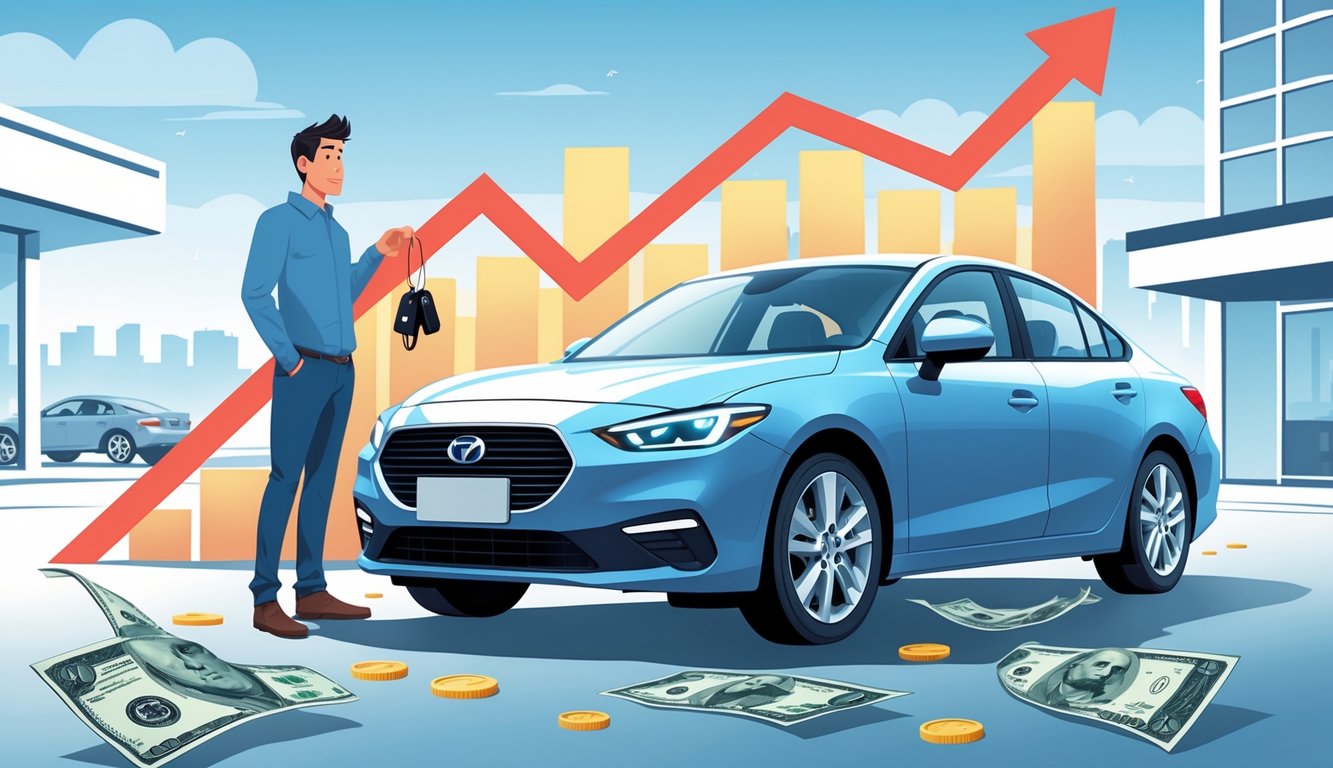
Overrating Clean Carfax Reports
Everyone treats a clean Carfax like it’s a magic golden ticket. It’s not. Vehicle history reports are way messier (and riskier) than anyone wants to admit. Half the important stuff doesn’t even show up.
Carfax Versus Reality
You’d be shocked how often Carfax misses major stuff. I’ve seen cars with $10,000 in repairs still show “no accidents”—because the owner paid cash at a body shop. A shop manager (been doing this 25 years) told me insurers log claims, but out-of-pocket work? Never makes it to Carfax.
I bought a “pristine” sedan last year, Carfax squeaky clean. Paint meter screamed “respray.” My dealer buddy just shrugged: “Not all damage gets reported.” NADA Guides even says, “Not all accidents or repairs are reported.” Depends on the state, too—some DMVs care, some don’t.
The worst part? One weird line in Carfax and your trade-in tanks. My neighbor lost $2,300 because the report mixed up dates and made it look like a crash. Took months to fix. Meanwhile, I saw a car with a new front end and Carfax had nothing.
Hidden Issues Beyond Reports
Here’s what really gets me: so many “clean Carfax” cars are disasters underneath. Not just scratches—actual hidden problems. Electrical messes, bad frame welds, warning lights that never pop up. No error code? No report. The two ASE techs I trust always find stuff Carfax misses, but you have to crawl under the car to spot it.
Sellers love to say “see Carfax” like that settles it. It doesn’t. Clean title doesn’t mean healthy car. Found a BMW with a musty trunk—turns out, flood car. No mention on Carfax. Recalls, odometer rollbacks, sketchy title swaps—Carfax misses plenty. J.D. Power says only about 60% of shops report to Carfax. That’s nuts.
And, yeah, I’ve seen a tech reset a digital odometer. It’s illegal, but it happens, and Carfax has no clue. Always, always get a mechanic to check the car. A flashlight and a nosy attitude beat a digital report every time. If you want to keep your resale value, Carfax alone won’t save you.
Misjudging the Power of Trade-In Value
Every time, someone’s convinced their trade-in is a bonus payday. Then I show the real numbers and—awkward silence. Dealership offers are never Craigslist prices. That gap? Huge. Expecting retail for a trade-in is the fastest way to lose money, especially on brands that drop value fast.
Dealership Discounts Explained
Walking into a dealership with my own car, I just brace for the speech. Salesperson acts like my “well-maintained” sedan lost half its value just by parking there. What they don’t say: every trade-in price covers reconditioning, market swings, and, obviously, profit. A certified appraiser I trust said, “Dealers shave off 15-25% from wholesale, just in case.” Not a myth, but nobody explains it.
They’ll toss around MSRP and “discount” like it means something. Sometimes they offer a trade-in “bonus,” then quietly bump up the new car’s sale price. I watched a friend lose $2,300 by not reading the breakdown. Only time I’ve seen someone win is when hybrid demand spiked—pure luck, not the norm.
How Trade-In Calculations Work
Okay, so why does my neighbor’s car—same color, same trim, basically a clone of mine—pull $1,800 more at trade-in, while I’m stuck in the “low range” on J.D. Power? I swear, the formulas behind these numbers are like trying to read IKEA instructions in a blackout. Dealers just type in mileage, accident history, trim, whatever recent auction numbers they find, and then slap on this “market adjustment” that means nothing to anyone but them. Edmunds ran a test car through three dealers and (shocker) got three totally different offers. No one seems to know what’s real.
And don’t forget all the random deductions they sneak in. Dirty upholstery? That’s $900 off, even though if you were selling privately, you’d just vacuum it and call it a day. This one manager told me over coffee—burnt, obviously—that they have to undervalue trades “just enough” to cover the stuff they didn’t spot. So when an online calculator spits out a number in two minutes, just remember: it’s not factoring in the haggling and backroom voodoo. The difference? You could lose vacation money for no reason, and good luck finding out where the number came from.
